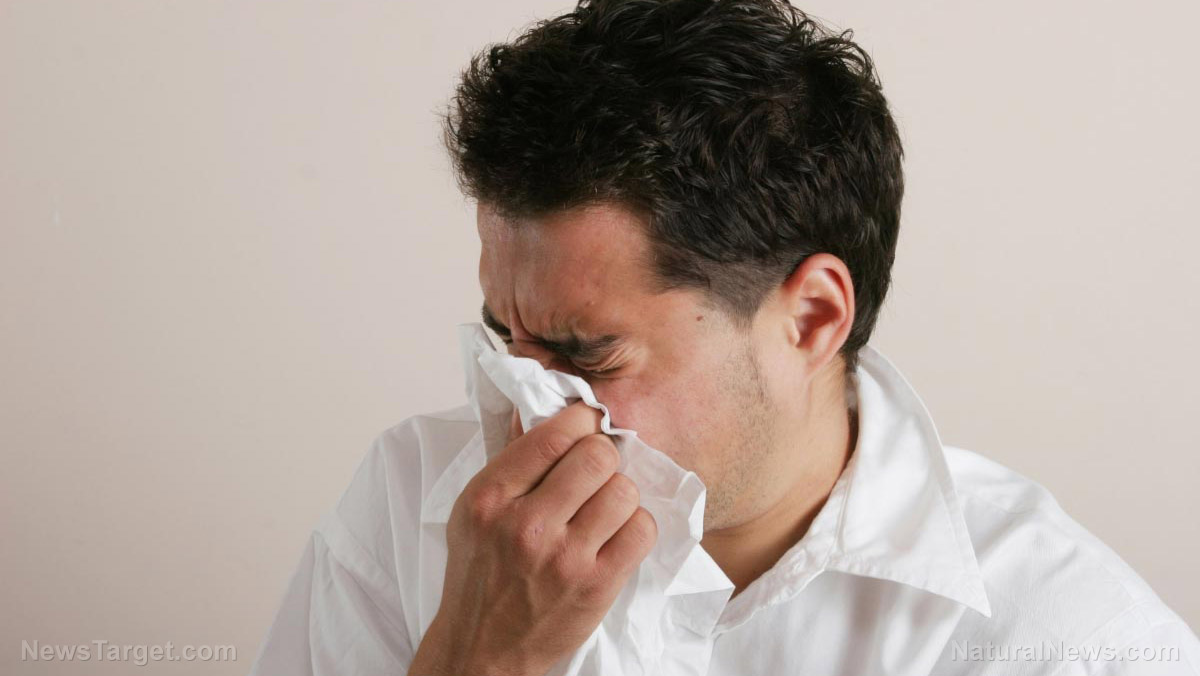Do you sneeze every day when you wake up? It is probably your immune system getting ready for the day
08/30/2018 / By Rhonda Johansson

Most of us assume that allergies are caused by pollen. As these foreign substances enter our system, our bodies release antibodies to attack the allergen. This causes the symptoms we all recognize such as wheezing, itching, a runny nose, and watery or itchy eyes among others. Nevertheless, new research is suggesting that allergic symptoms such as sneezing may actually be reflective of where you are in your sleep cycles.
Researchers have noted that our immune system (which is closely tied to how you respond to allergies) is dependent on our biological clocks. If you find yourself sneezing at roughly the same time every day, that may mean that your body is simply “prepping” itself for the day.
Scientists have noted that most people sneeze more often in the morning, right after they wake up. They believe that this is an immune response meant to clear excess mucus out of the sinuses.
Their hypothesis is simple but intriguing: sleep “resets” the body, effectively putting the immune system to rest. When we are sleeping, the immune system shifts to lower gear as it fights fewer outside invaders. However, as the body prepares itself to wake up, so too does the immune system.
Dr. Michael Smolensky, a chronobiologist at the University of Texas explains, “It turns out that there is an endogenous circadian rhythm in the immune system and generally it tends to rev up in the later stages of sleep.”
Dr. Smolensky explains that the symptoms of an allergy actually begin while we are still asleep, but we do not experience them until we wake up. The most common way our immune system clears itself is by sneezing. (Related: Sneezing? Itchy eyes? Probiotic-rich yogurt can relieve seasonal allergies!)
In line with this, Dr. Smolensky described early morning sneezing as a symptom of a “sun allergy.”
“I use the term loosely though. People get outside, they’re looking to the east at the sunrise, and it can very often provoke the thought of sneezing,” he says.
Dr. Mahboobeh Mahdavinia, an allergy and immunology specialist at Rush University Medical Center says that these findings are in line with what immunologists have long suspected. Dr. Mahdavinia explained that those who sneeze more often are said to be more vulnerable to circadian changes.
Our immune systems fluctuate depending on our sleep cycles; and our sleep cycles can be affected by our immune system. The relationship of these two dictate just how much the body “preps” itself as it wakes up. Those who are more vulnerable in the morning typically will sneeze more as the immune system revs up. This is to balance the levels of secretions that vary for each individual.
What you need to know about allergies
Sneezing is not life-threatening, but it can be one of many symptoms of a severe allergic reaction. Allergies are how your body responds to a foreign substance. Most of the time the antigens produced by your body will calm the allergy within a few days.
A severe reaction to an allergen can result in anaphylaxis. This is a potentially fatal allergic reaction. Anaphylactic shock is characterized by a sudden drop in blood pressure along with difficulty breathing. Those who are aware of their allergic reactions can be severe are encouraged to carry an emergency anaphylaxis kit that contains injectable epinephrine.
Find more stories about sneezing and how to improve your health at Health.news.
Sources include:
Tagged Under: allergic reaction, allergy, immune reponse, immune system, morning sneezing, sneezing




















